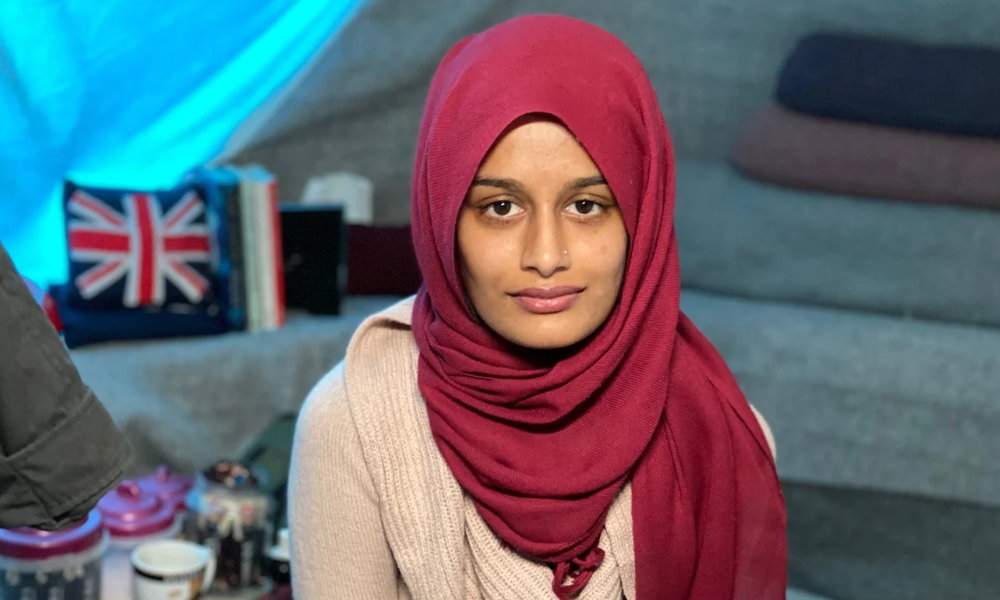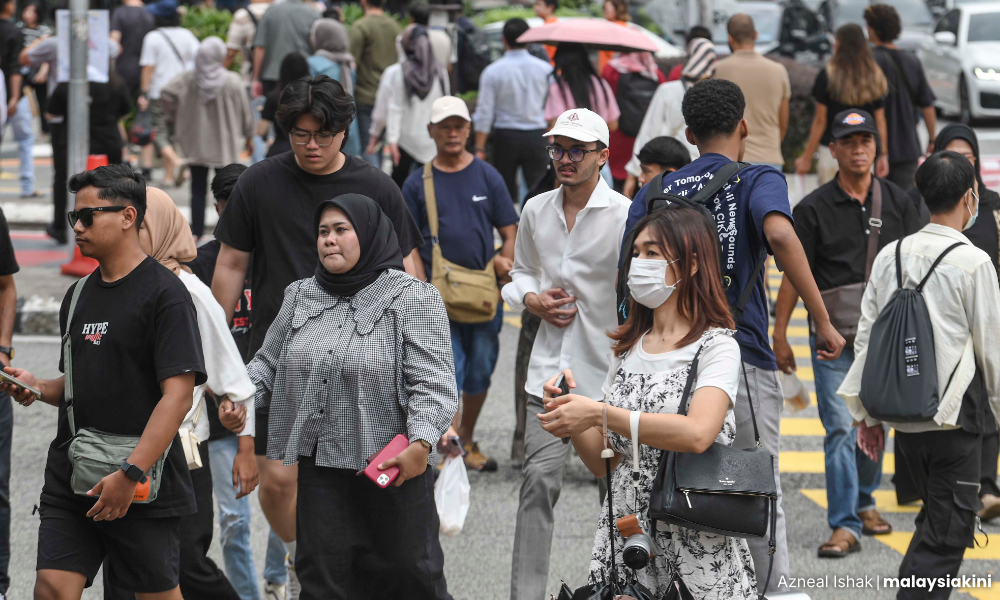Youth radicalisation has become an increasingly pressing global issue, transcending geographical boundaries and affecting societies in various ways - including in Europe, Canada, Australia, and Southeast Asia.
Young individuals, who are navigating a crucial stage of identity development, are especially susceptible to extremist ideologies.
The radicalisation of youth can lead to severe and widespread repercussions, such as violent extremism, social unrest, and divided communities.
It is vital to comprehend the root causes and implement effective prevention measures to alleviate this threat.
In this context, while Malaysia possesses a strong deradicalisation initiative, the approaches employed by Singapore to combat radicalisation could provide significant lessons for Malaysia, which faces unique challenges associated with its racial, religious, and political landscape.
This article will dissect the phenomenon of youth radicalisation, review successful intervention initiatives from various countries and provide recommendations for Malaysia to tailor these approaches to its unique circumstances.
A vulnerable age group
Adolescence represents a pivotal period in an individual’s life, characterised by significant emotional and psychological growth.
During this phase, young people are especially vulnerable to external factors that can influence their perspectives.
Radicalisation takes place when individuals embrace extremist beliefs, frequently as a reaction to personal, social, or political discontent.
For many adolescents, these beliefs provide a sense of community, purpose, and identity, which can be particularly appealing to those who feel alienated or uncertain about their role in society.
The radicalisation process is intricate and involves various dimensions, often propelled by a mix of psychological weaknesses and social influences.

Young individuals grappling with feelings of depression, anxiety, or loneliness may find themselves especially at risk.
Moreover, experiences of trauma, exposure to violence, or familial challenges can intensify these vulnerabilities.
Such psychological conditions create an environment conducive to the acceptance of extremist ideologies, which frequently offer a sense of community and potential resolutions to personal issues.
The internet significantly contributes to the radicalisation of youth, serving as a potent medium for the spread of extremist ideas.
Online platforms often act as breeding grounds for extremist groups, where individuals can encounter ideologies that endorse violence and animosity.
With the proliferation of social media and anonymous online spaces, young people can easily access extremist content and engage with others who share similar views, facilitating the targeting and manipulation by radical organisations.
Singapore’s approach: A case study
Singapore provides a valuable case study in combating radicalisation, with a well-established framework for addressing extremism, particularly among its youth.
The country has implemented a comprehensive, proactive approach that combines legal measures, community engagement, education, and rehabilitation.
One of the core elements of Singapore’s strategy is the Internal Security Act (ISA), which allows the government to detain individuals who pose a threat to national security, including those who have been radicalised.

This preventive approach ensures that potential threats are neutralized before they can carry out violent acts.
However, Singapore’s strategy is not solely focused on detention. Rehabilitation and reintegration are central components of its counter-radicalisation efforts.
The government emphasises community-based interventions, such as counselling, education, and engagement, to help radicalised individuals reintegrate into society.
In one notable case, two youths were detained this year for planning violent acts under the influence of the Islamic State and other far-right extremist ideologies.
In response, the government not only detained the individuals but also implemented a rehabilitation programme aimed at addressing their psychological vulnerabilities and fostering a more inclusive worldview.
Singapore also places significant emphasis on education as a preventive measure. Schools play a pivotal role in countering radicalisation by promoting critical thinking, social cohesion, and religious tolerance.
The Singaporean curriculum includes programmes designed to foster resilience against extremist ideologies, teaching students about the importance of peaceful coexistence and respect for diversity.
Despite the success of these measures, there have been concerns about the potential erosion of civil liberties, particularly regarding the use of preventive detention under the ISA.
Critics argue that such measures may infringe on individual rights, raising questions about the balance between national security and personal freedoms.
Shamima Begum: Lessons from the UK
Shamima Begum’s situation provides valuable insights into the intricate dynamics of youth radicalisation.
In 2015, she, along with two peers from Bethnal Green Academy in the UK, departed for Syria to align with the Islamic State.
During a 2021 interview, Shamima shared her experiences of getting radicalised, revealing significant details about the grooming she underwent through both peer influence and online interactions.

Her narrative challenges traditional perceptions of radicalisation, asserting that it is a gradual process rather than a singular event.
It emphasises the pivotal role of personal relationships and peer dynamics in her grooming, effectively complicating the notion that radicalisation is exclusively driven by online materials.
Begum’s case highlights the shortcomings of the UK’s counter-radicalisation efforts, particularly the Prevent Program, which is designed to identify and mitigate radicalisation at an early stage.
Despite the extended timeline of her radicalisation, neither her educational institution nor local authorities detected the warning signs.
This lack of timely intervention has prompted criticism of the UK’s strategy, indicating a need for a more comprehensive approach that considers the social and interpersonal elements contributing to youth radicalisation, rather than predominantly concentrating on online influences.
Malaysia and its complexities
Back home, Malaysia faces a distinctive challenge in combating youth radicalisation, largely due to its complex social structure characterised by racial and religious diversity.
The political arena is predominantly influenced by the Malay-Muslim majority, while the Chinese and Indian minorities frequently experience feelings of marginalisation.
This diversity creates a delicate power dynamic, often resulting in tensions among various ethnic and religious groups, which are particularly evident in political discussions.

The escalating discourse regarding the influence of Islam in governance, coupled with perceived grievances within the Malay-Muslim community, fosters an environment conducive to the proliferation of radical ideologies.
Extremist organisations like the Islamic State take advantage of these tensions by advocating ideologies that appeal to the disenfranchised and marginalised populations.
Concurrently, far-right movements, which promote narratives of racial and religious superiority, are increasingly resonating with certain youth demographics, particularly those who feel excluded from political and social spheres.
The racial and religious divides in Malaysia render the issue of youth radicalisation especially intricate.
Radicalisation may stem from either religious extremism or far-right ideologies, both of which capitalise on sentiments of alienation.
Young individuals, particularly those belonging to minority groups, may be drawn to these ideologies as a way to seek recognition, assert their identity, or find a sense of purpose in a society characterised by divisions. - Mkini
R PANEIR SELVAM is the principal consultant of Arunachala Research & Consultancy Sdn Bhd, a think tank specialising in strategic national and geo-political matters.
The views expressed here are those of the author/contributor and do not necessarily represent the views of MMKtT.




No comments:
Post a Comment
Note: Only a member of this blog may post a comment.